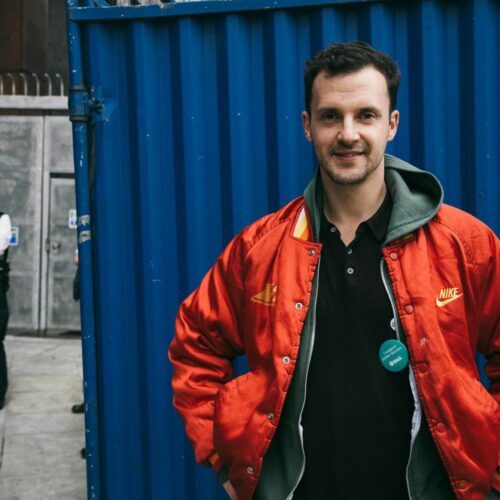Two young children are laughing as they ride in circles around Kato Pedina’s town square on their tiny bicycles. They’re watched over by adults sitting on tables outside the small taverna, a scruffy stray dog spreadeagled on the floor and a stern-faced statue of a hero of the Greek resistance in WWII — which is one of the most modern things in sight. Cast your eyes around in any direction throughout this idyllic stone hamlet in the northwestern foothills of the Mitsikeli mountains and you’ll struggle to find anything that’s not centuries old.

Kato Pedina is one of the oldest villages in the Zagori region. An ancient tomb nearby is evidence of life here as far back as the second millennium BC. The village developed a fame during the Byzantine era and like many other settlements in the area, flourished after the 16th century. Today, the region is one of the least developed and most sparsely populated areas in Greece, which has helped maintain its extraordinary, unspoilt beauty — recognised by its status as a UNESCO Geopark.
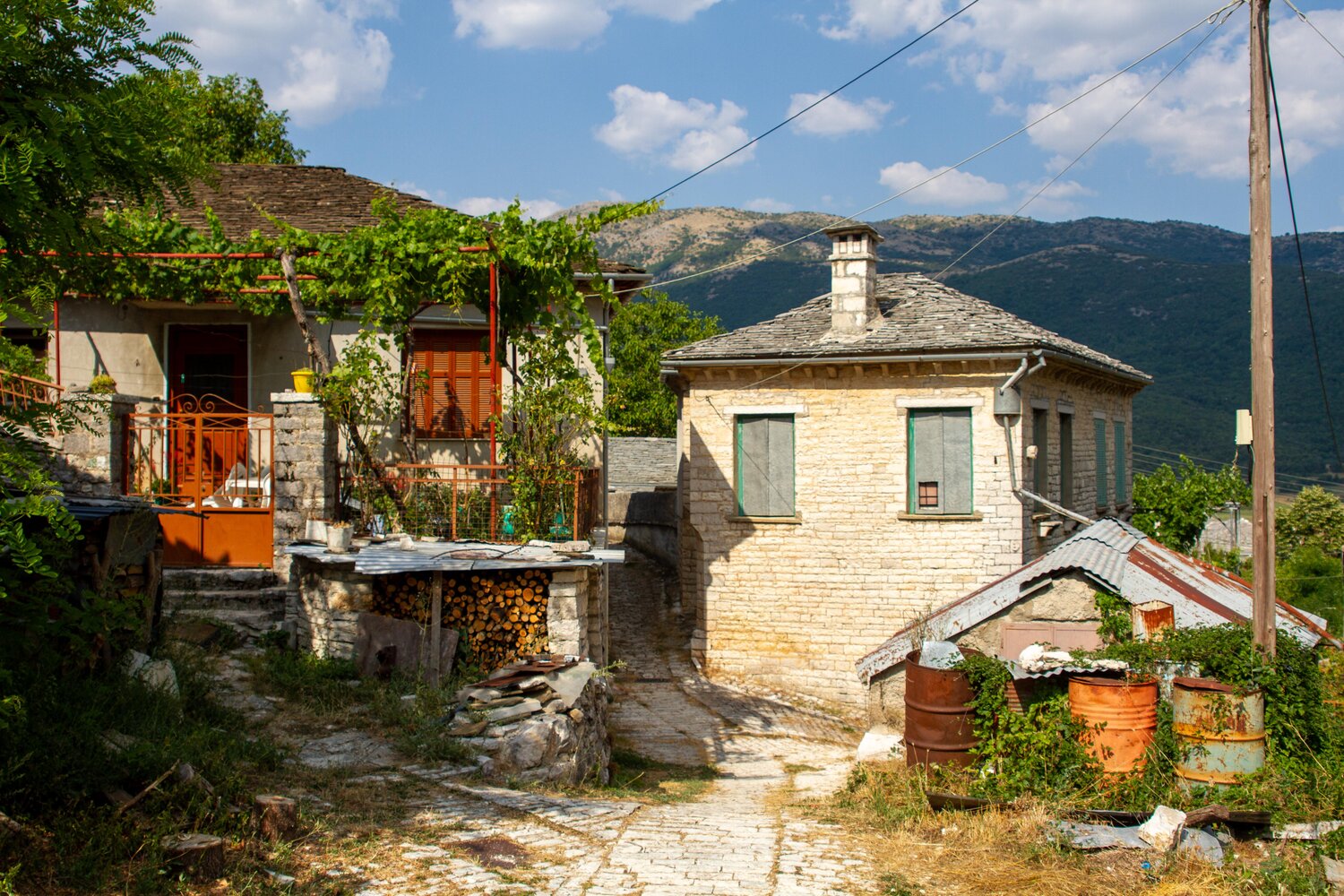
But unknown to the thousands of tourists who visit each year, Zagori’s timeless way of life is under imminent threat of destruction. “We found out about the plans for seismic research in search of oil and gas from a poster they put up here in the square,” explains Lila Tsatsi, who is a leader in the Save Epirus campaign. “The plans had been drawn up years before, but this was the first we heard about it. It’s secret, they don’t want to talk about it and they don’t want people to be informed. The hurt we felt about how we discovered our way of life here is in danger soon turned to anger. It’s this anger that powers our campaign to stop the drilling.” (https://savepirus.gr/)
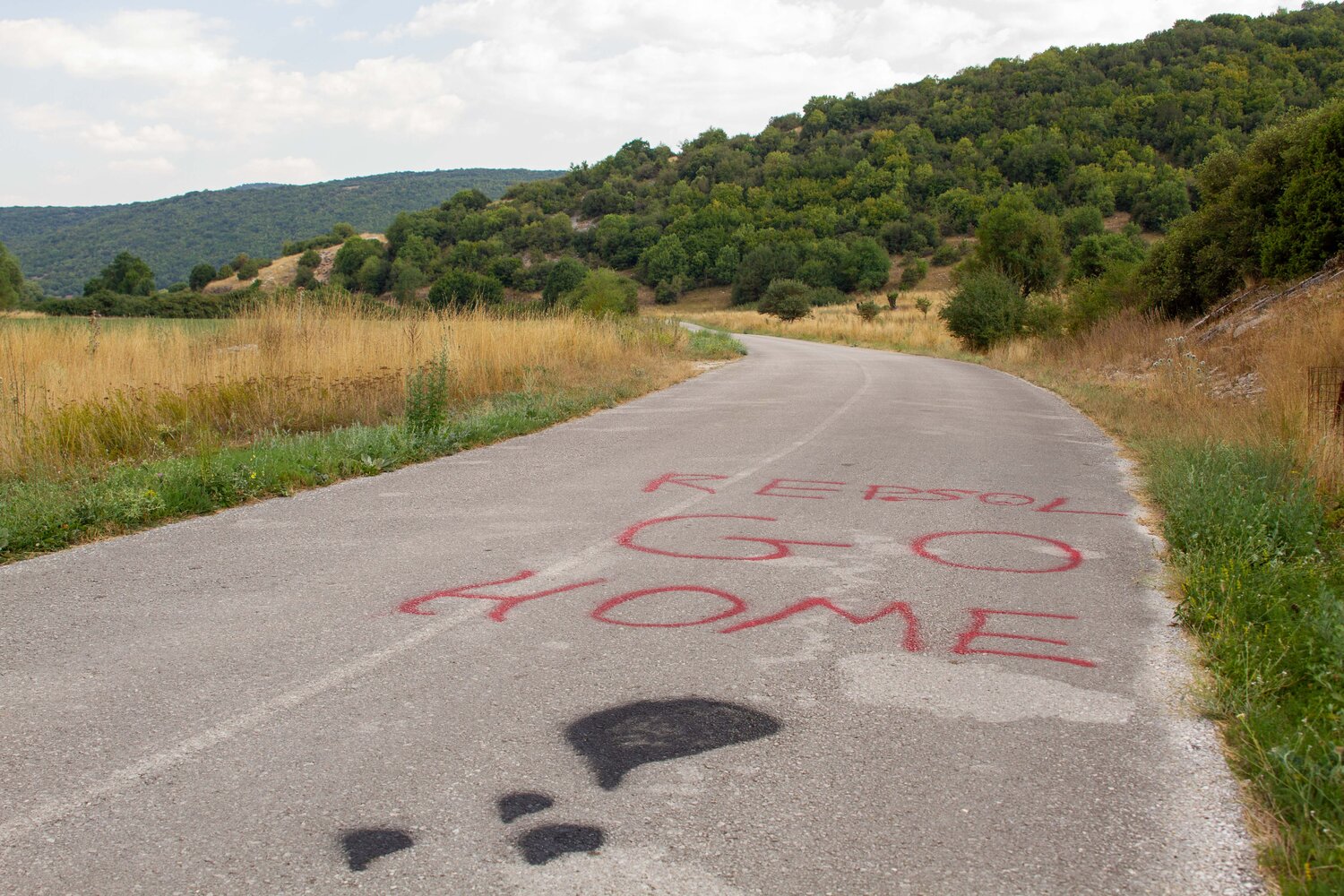
Lila never planned to join an environmental movement. She and her family left Athens in 2007, so her children could grow up connected to nature. They opened Anemi Guesthouse in an old building in village and have been working to develop the business ever since. But the drilling plans threaten their livelihood — and those of all in the area who depend on tourism and agriculture.
Like many others in the region, Lila sees this truly as a battle for survival. The Save Epirus campaign is part of a wider struggle, which has grown quickly to become broad-based and creative: a traditional clarinetist leads protest marches; Vrisoules, a group of women young and old, dance in traditional dress to non-violently but provocatively disrupt government events and meetings; ice hockey players have staged an impromptu protest game high in the mountains; and a beekeeper has blocked areas designated for oil research using his hundreds of beehives. Yet, to this day, there’s little sign the authorities are listening. The geological research phase has been completed and plans for exploratory drilling and test wells are continuing at pace.
After Greece’s financial crisis, the government auctioned a third of the country for oil and gas exploration; urged on enthusiastically by the EU. Epirus is believed to be sitting on considerable reserves and many local politicians in this under-developed region suffering from severe population decline have been seduced by promises of wealth and jobs.
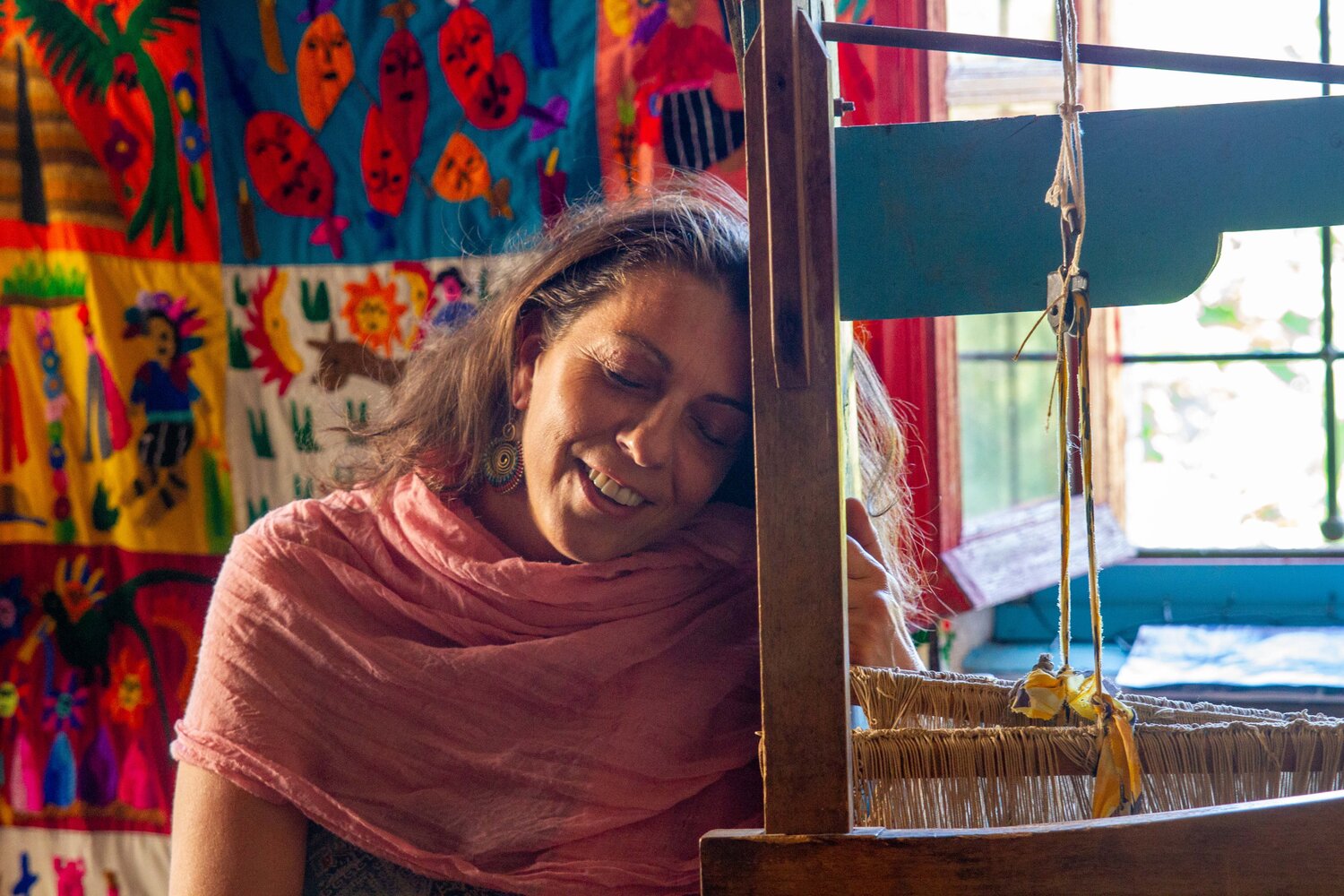
Lila and her group of local people have been forced to uncover the plans themselves and have found the sums don’t add up. Profits will be sucked out of the area and the handful of jobs created will not compensate for the destruction of the local economy, primarily based on tourism and small-scale agricultural production. “It’s not only an environmental issue; as citizens, we are being deceived,” Lila explains. “The lack of information provided and the unwillingness of the corporate media to discuss what’s happening is compounded by the fact that most Greeks are in denial. We need people to wake up to the threat we are under — and fast, because we are running out of time.” (https://www.sciencedaily.com/releases/2015/01/150107131401.htm)
For years now, the science has been clear that most known hydrocarbon reserves must stay in the ground if we are to avoid catastrophic levels of climate change. As France recently moved to ban hydrocarbon exploration across its territories and more countries are likely to follow suit, Greece’s push to open vast swathes of its most precious natural areas to exploitation seems short-sighted, at best.
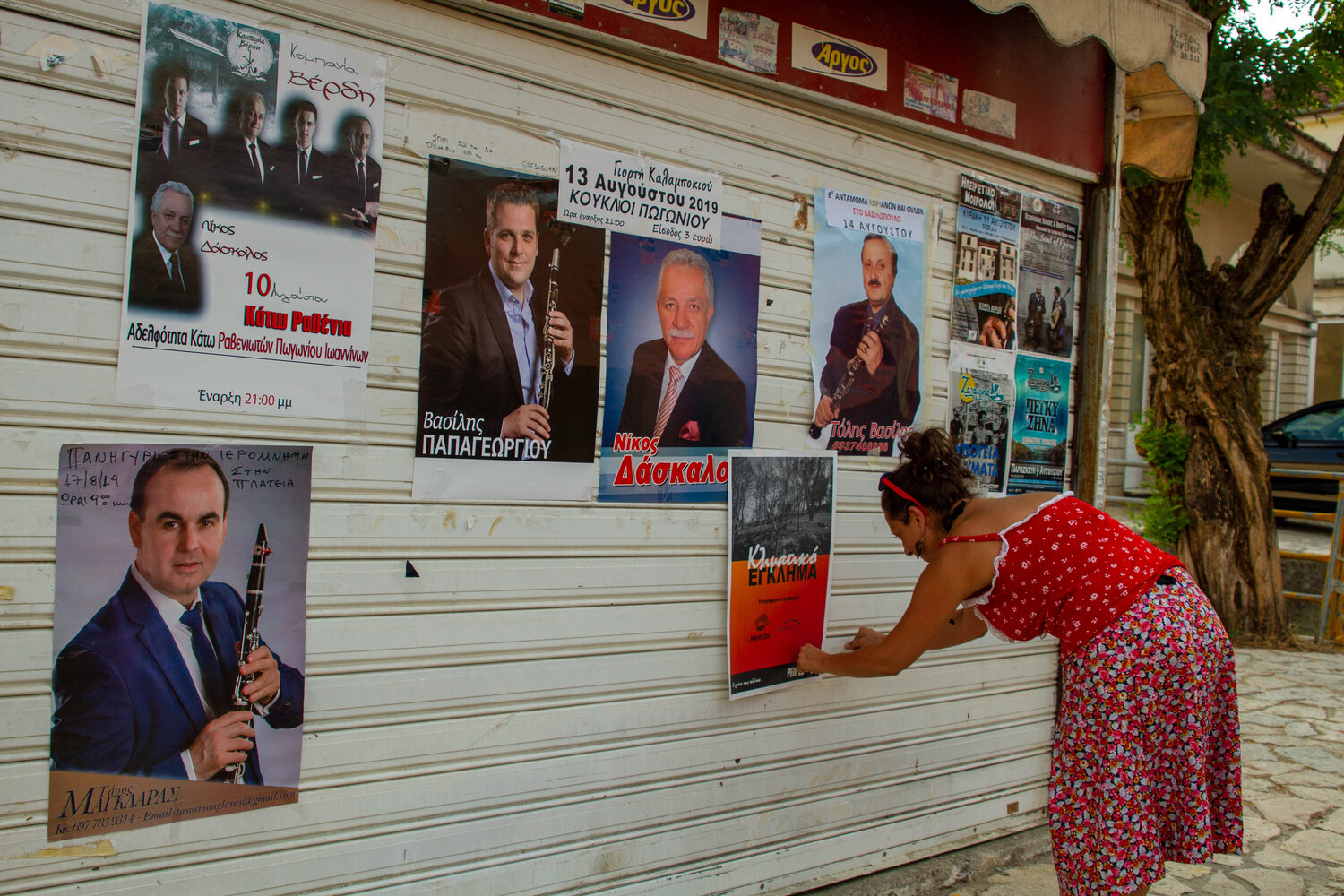
But the environmental impact of drilling in Epirus could be particularly disastrous. The region is Greece’s primary water source and contamination of this vital resource could cripple a country already edging closer to a water crisis. Aoos – Vikos Geopark in Zagori is on the Tentative List of UNESCO World Heritage Sites and much of the area is also on the EU’s Natura 2000 protected area scheme — which, theoretically, should prevent destructive resource extraction.
Despite its slow decline after decades of neglect, under-investment and emigration, people in Epirus still have an incredibly strong sense of their culture and identity. Ipirotika (the music and dance of Epirus) is driven by haunting, trance-like clarinet music and it is these traditions upon which the resistance is being built, to bind the community together to resist further oil exploration.
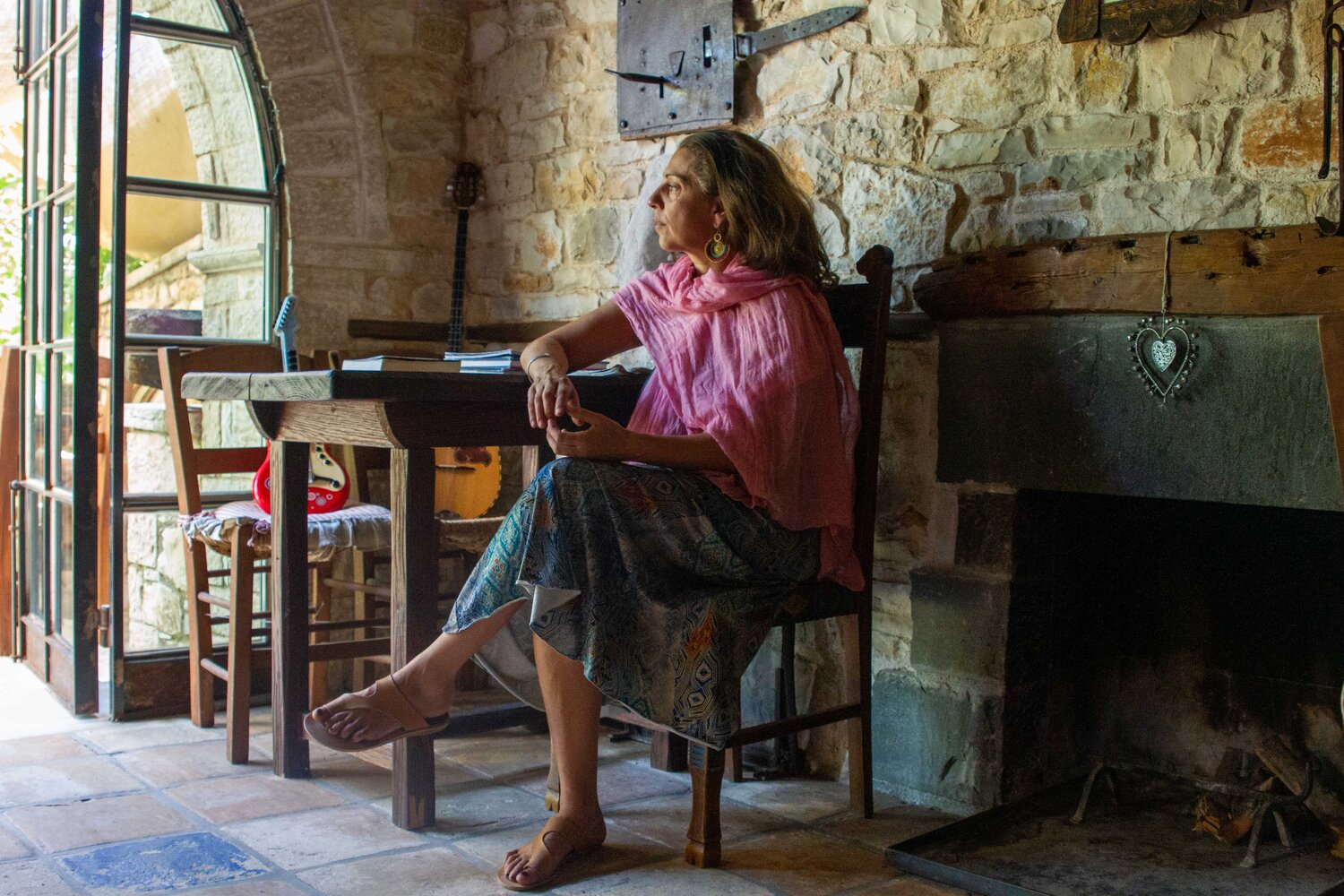
Lila refuses to allow the region’s isolation — on the Albanian border, over five hours away from the capital, Athens — to prevent the story being heard. She has been at the forefront of efforts to get the word out and start international conversations, such as winning a Patagonia grant to help continue working and amplify their message.
“To succeed, we have to make saving this region a global issue,” Lila explains. “We have to look beyond Epirus, build connections with movements everywhere and make this story heard all around the world. We have to make the international community understand that Greece’s environment belongs to everybody. This is the only chance we have.”

